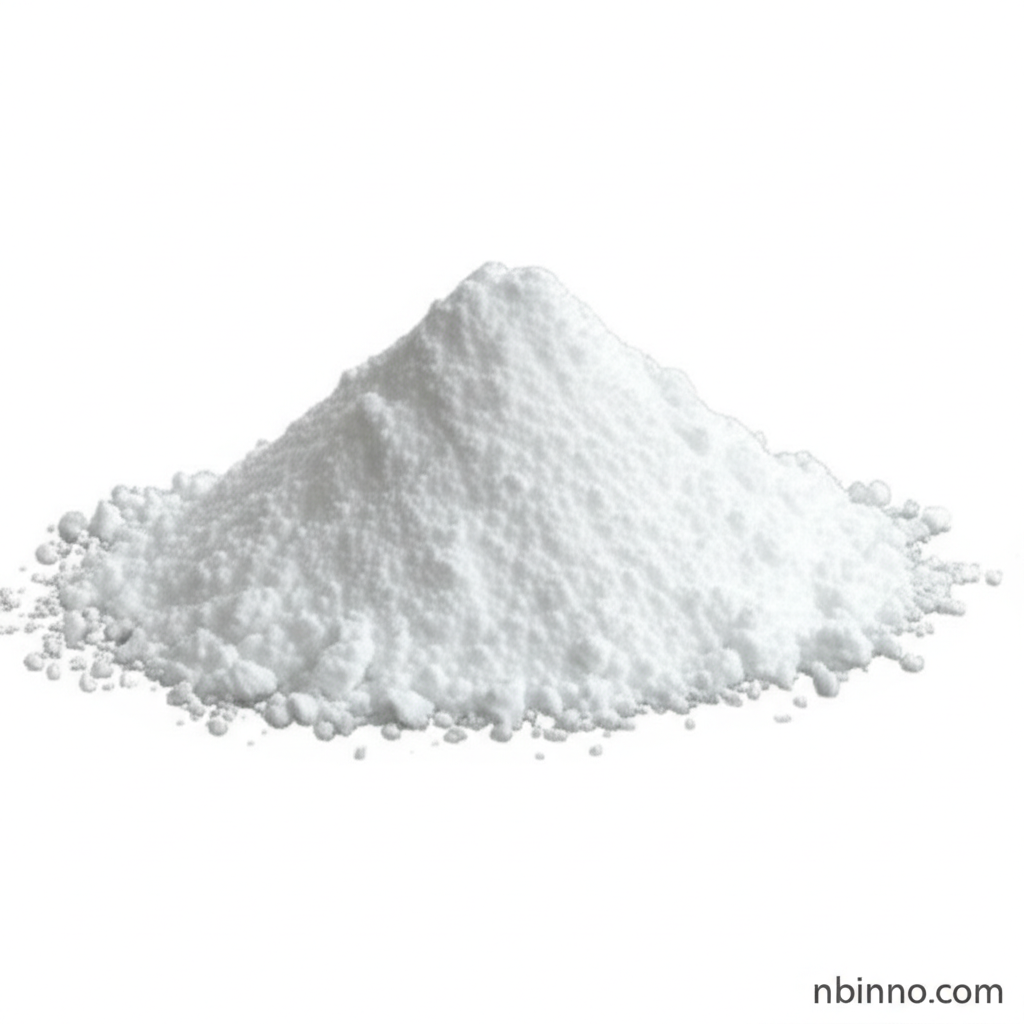Zinc Stearate: Versatile Lubricant and Release Agent for Industrial Applications
Discover the multifaceted benefits and extensive industrial applications of Zinc Stearate, a key chemical additive.
Get a Quote & SampleProduct Core Value

Zinc Stearate
Zinc Stearate is a white, powdery substance derived from stearic acid and zinc oxide. Renowned for its lubricating, water-repelling, and anti-caking properties, it serves as an indispensable additive in a wide array of industrial processes.
- Leveraging its role as a lubricant and release agent in the plastics industry, Zinc Stearate enhances processing efficiency and prevents sticking during molding.
- In the rubber sector, it acts as a vulcanization activator and internal lubricant, contributing to improved material flow and reduced tackiness, making it a key component for rubber manufacturing.
- As a key ingredient in cosmetics, Zinc Stearate functions as a lubricant and thickening agent, enhancing product texture and providing a smooth feel, a crucial aspect for cosmetic formulations.
- Its application in paints and coatings as a flatting agent and dispersant improves the finish and application properties of various surface treatments, a vital feature for paint and coating manufacturers.
Key Advantages Provided
Enhanced Processability
Zinc Stearate provides superior lubricity, reducing friction and improving the processability of materials in plastic and rubber manufacturing. This contributes to smoother production cycles and better end-product quality.
Superior Surface Finish
In paints and coatings, Zinc Stearate acts as a flatting agent and improves dispersion, leading to a refined, smooth, and even surface finish, a critical benefit for high-quality coatings.
Versatile Application Range
From preventing caking in cosmetics to acting as a mold release agent in pharmaceuticals, the wide range of uses highlights Zinc Stearate's versatility and essential role across multiple industries.
Key Applications
Plastics and Polymers
Utilized as a lubricant and pigment dispersion aid in PVC, polyethylene, and ABS production, improving processing and product quality.
Rubber Industry
Functions as an activator for vulcanization and an internal lubricant, enhancing flow and reducing tackiness in rubber compounds.
Cosmetics and Personal Care
Acts as a lubricant, thickener, and anti-caking agent, improving texture and feel in makeup and other personal care products.
Paints and Coatings
Serves as a flatting agent, dispersant, and sanding aid, contributing to improved finish, application, and stability.
